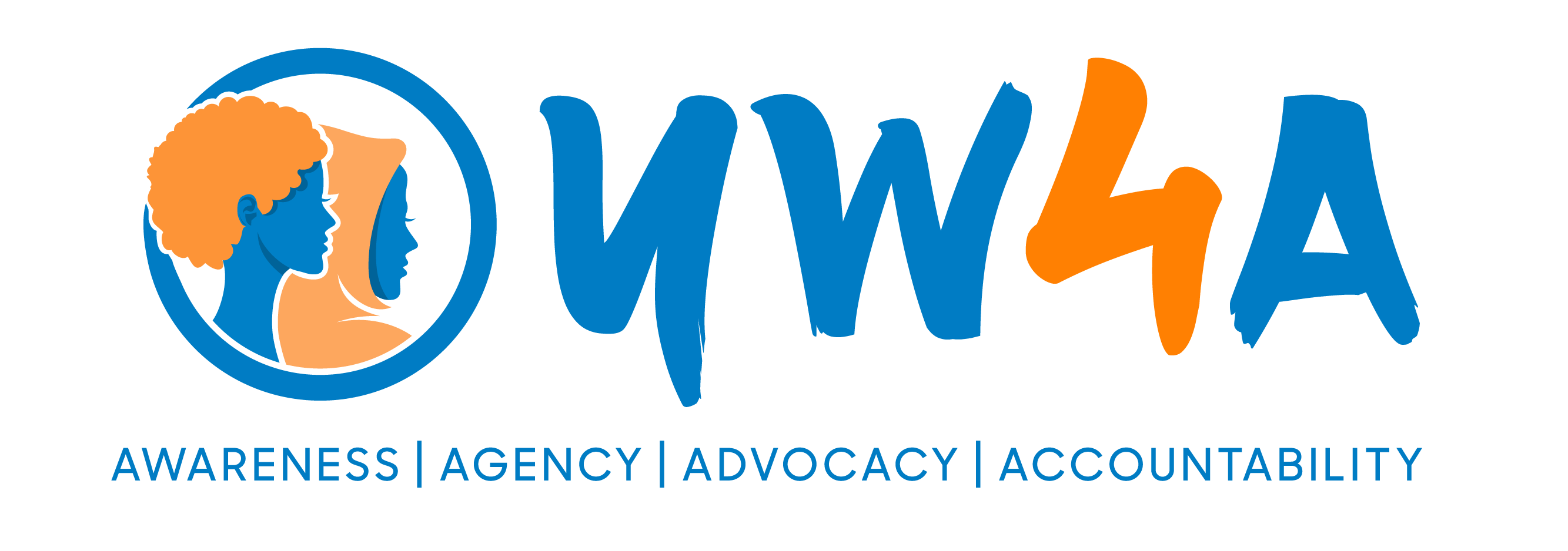How YW4A Works
Our Advocacy Agenda
YW4A works to reduce the gap between the rights of young women and the effective development, adoption and implementation of the concerned policies and laws.
Targeted laws and policies
Under Pathway 4, YW4A is working to reduce the gap between the rights of young women and the effective development, adoption and implementation of the concerned policies and laws.
Pathways
Progress towards the vision will be achieved through four interconnected and intrinsically linked pathways in Palestine, Egypt, Kenya and South Sudan:
PATHWAY 1
Advocacy capacity of WROs
- Enhanced capacity to apply commitment, skills and organizational resources to develop and implement short and long term strategies, and tactics for advocacy.
- Demonstrated commitment to issues of diverse groups of young women and increased organisational vitality
- Greater access to opportunities and power structures, through partnerships and coalition building.
- Collectively, WROS and young women identify national advocacy priorities, objectives and strategies.
- Strengthened advocacy capacity of 27 women’s rights and faith-based organisations to amplify young women’s voices in Egypt, Kenya, Palestine and South Sudan by 2025



PATHWAY 2
Young women leadership
- Strengthened individual agency and social capital, building young women’s collective leadership with peers and coalitions.
- Evidence on young women’s diverse realities and challenges generated and used for policy, legal, and social norms transformation.
- Enhanced leadership of 17,540 young women to effectively engage in collective action and decision-making in public, private, and civic spaces in Egypt, Kenya, Palestine and South Sudan by 2025

PATHWAY 3
Social norms change
- Faith actors mobilized and capacitated to challenge gender discriminatory social norms and to promote young women’s rights
- Attitudes of community members have altered positively towards young women’s rights.
- Men practicing positive masculinities to secure young women being safe and heard.
- Transformed social norms and practices of 22 faith-based organisations that constrain young women’s rights in Egypt, Kenya, Palestine and South Sudan by 2025.



PATHWAY 4
Legal and policy reforms
- National level decision makers’ positive responses to demands by young women and their diverse allies.
- Young women and their allies hold governments accountable through advocacy initiatives including engagement with national, regional and international decision-making spaces
- Influenced adoption, amendment, withdrawal or effective use and implementation of 18 laws and policies towards promoting young women’s rights to leadership, participation and ending SGBV in Egypt, Kenya, Palestine and South Sudan by 2025.
Download Graphic 7: Theory of Change




